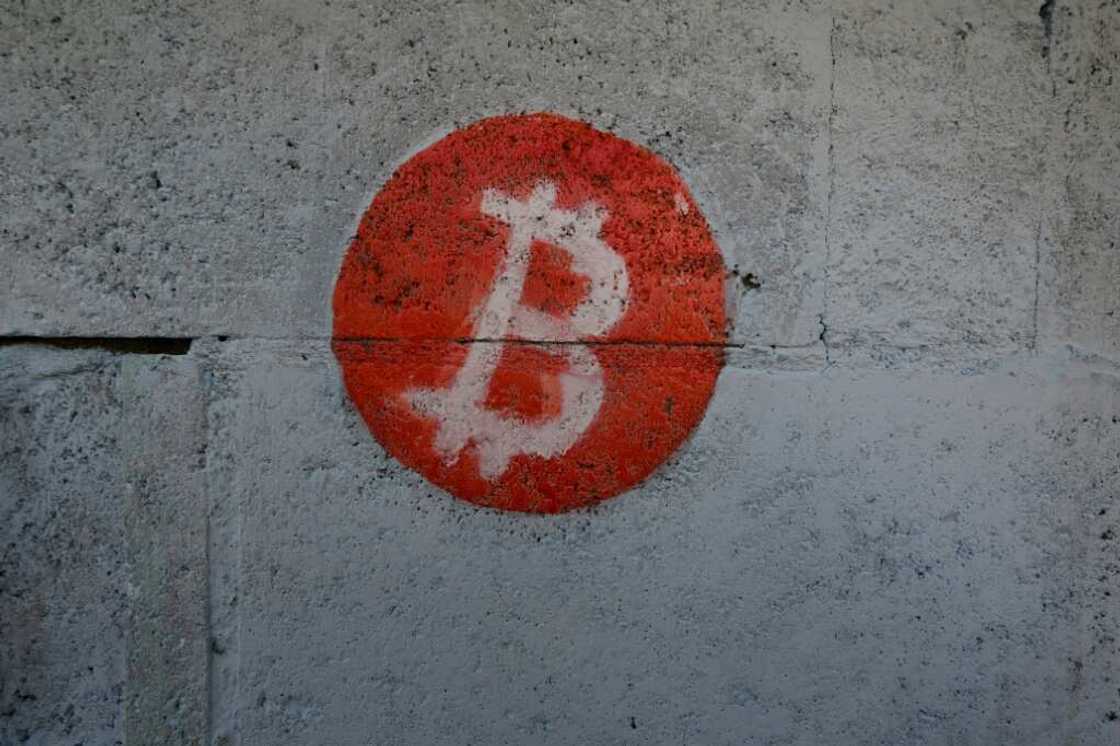Bitcoin miners face survival test in 'halving'

Source: AFP
PAY ATTENTION: The 2024 Business Leaders Awards Present Entrepreneurs that Change Nigeria for the Better. Check out their Stories!
Miners of bitcoin will soon face a halving of the reward for operating the most popular cryptocurrency, in a pivotal event that is a test of survival, industry commentators say.
The halving, held every four years and next due this month, exposes the weakest mining companies and individuals because it slashes their main source of income, according to experts.
Bitcoin is created as a reward when computers solve complex puzzles to decide which miner wins the privilege to validate the block and receive the reward, in a costly process using vast amounts of energy.
That reward has been fixed for the last four years at 6.25 bitcoins per new block, and is expected to drop to 3.125 bitcoins later this month. The new reward will total more than $210,000 according to Wednesday's price level.
"The block reward halving tends to 'shake-out' the weaker mining operations," Simon Peters, analyst for trading company eToro, told AFP.
"Unfortunately for some, with the lower block reward received it no longer becomes profitable to mine bitcoin and the operation shuts down or gets acquired by a larger rival."
PAY ATTENTION: Click “See First” under the “Following” tab to see Legit.ng News on your Facebook News Feed!
'Downward spiral' for some
Since the last halving in May 2020, the digital unit has enjoyed a record-breaking run.
That streak continued this year propelled by moves toward greater trading accessibility and the looming halving -- which is aimed at limiting the number of bitcoin in circulation.
Bitcoin peaked last month at an all-time pinnacle of just over $73,797 and this has partly offset the impending reward shortfall for the mining community.
Yet diminishing returns could stop miners from investing in the latest and quickest computer technology -- and they could even pause operations as galloping costs outweigh earnings.
Peters warned this could spell "a downward spiral" for some miners whose activities become uncompetitive.
"Their probability of mining a block reduces due to having less computational resources," he added.
"If there is a significant drop in the bitcoin price post-halving then lower margins can be greatly exacerbated."
Bitcoin mining firm Hut 8 Corp announced in March that it would cease operations at its Drumheller facility in Alberta, Canada, partly blaming excessive energy costs.
Race for performance
In order to remain competitive, titans of the crypto sector are racing to cut costs, invest in efficient machines and deploy cheaper and greener energy sources to both cool and power their enormous banks of bitcoin-mining computers.
"The big things that we've done is we've been increasing our fleet efficiency," said Taylor Monnig, head of mining operations at CleanSpark.
The US firm bought 160,000 new "Bitmain S21" computers which "are currently the most efficient machines available" and will replace older-generation technology, he told AFP.
CleanSpark has also developed a passive cooling system to further reduce its energy bill.
Canadian competitor Bitfarms claims to derive 80 percent of its power from hydroelectricity and plans further expansion.
Hydroelectric energy is "not only green but also sustainable economically in terms of its price", said Bitfarms chief mining officer Ben Gagnon.
Consolidation
High costs have also powered consolidation in the sector, with some mining firms buying stakes in rivals -- and even merging like when Hut 8 and Bitcoin Corp combined late last year.
The new group, Hut 8 Corp, has mining operations but has also diversified its income streams to cover fixed costs, selling services to host and operate mining facilities.
Another sector heavyweight, Marathon Digital, has accumulated a war chest totalling $1.5 billion according to its latest accounts, to help fund potential acquisitions that need turning around in order to ramp up capacity.
"We are able to look at opportunities," Marathon chief growth officer Adam Swick told AFP.
"If there might be sites that are struggling, if there's a site with an attractive electricity pricing that just has an older generation machines that might not be as efficient... that might be an opportunity for Marathon to come in, buy the site, and upgrade the machines. And then suddenly it's an attractive site."
PAY ATTENTION: Unlock the best of Legit.ng on Pinterest! Subscribe now and get your daily inspiration!
Source: AFP






